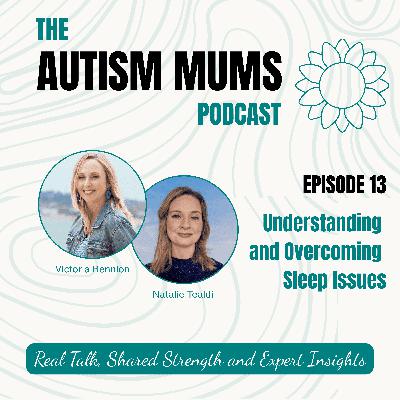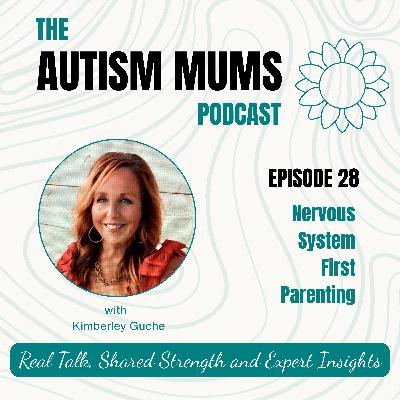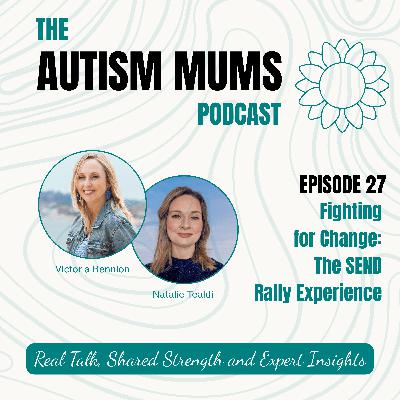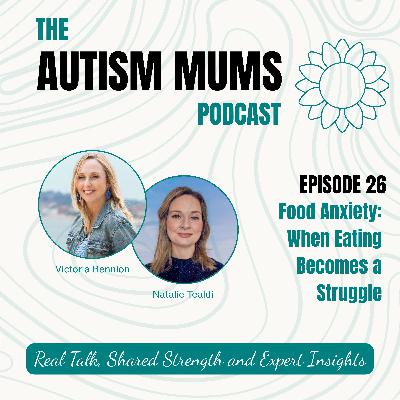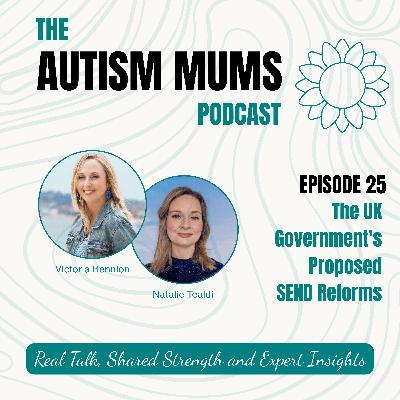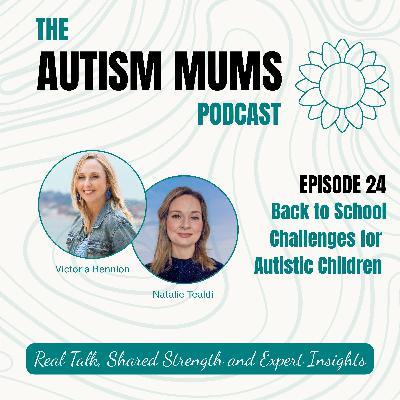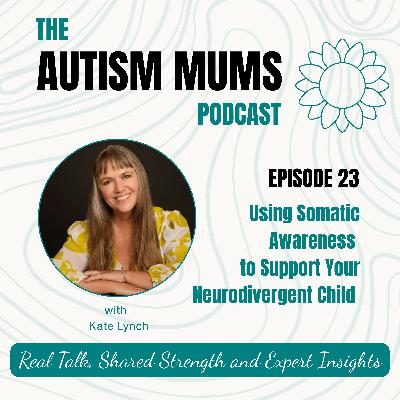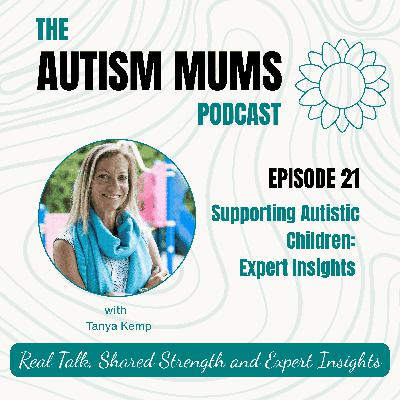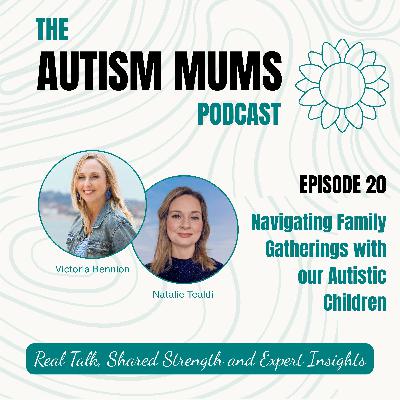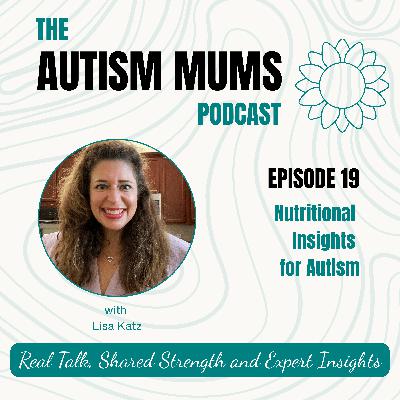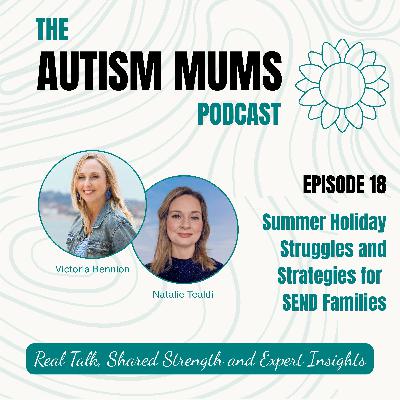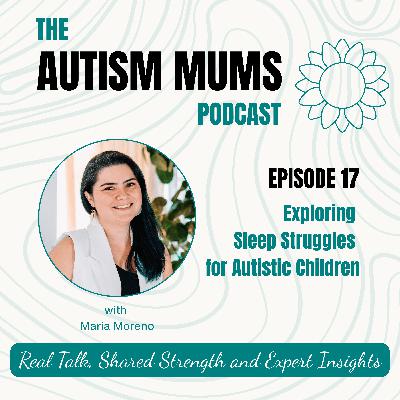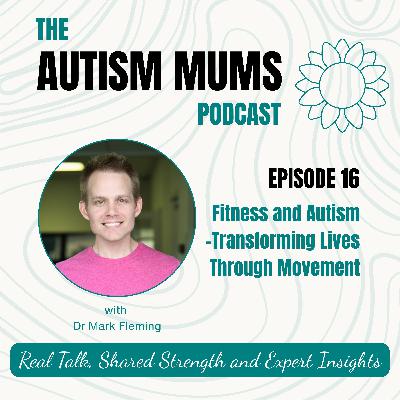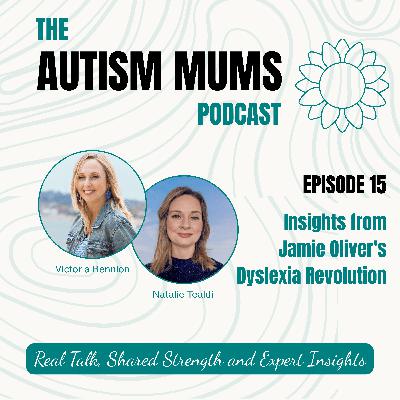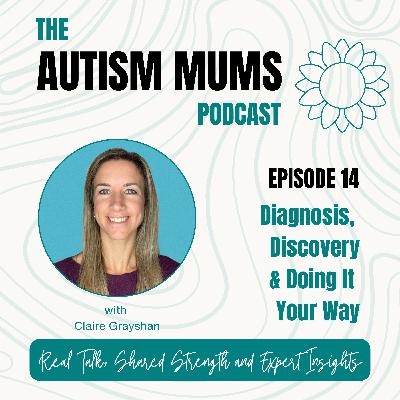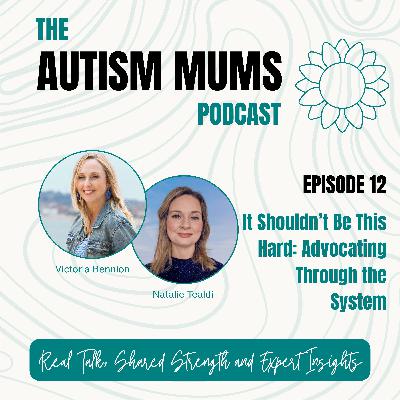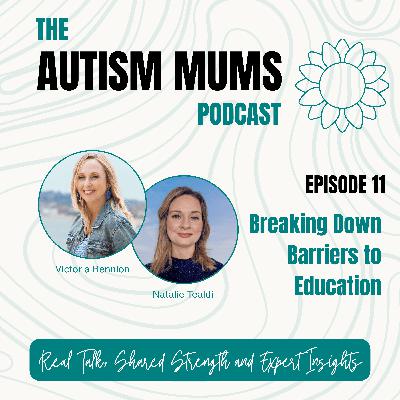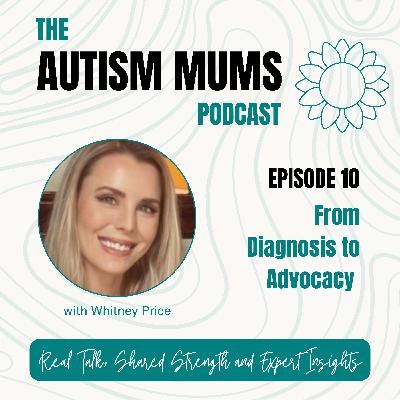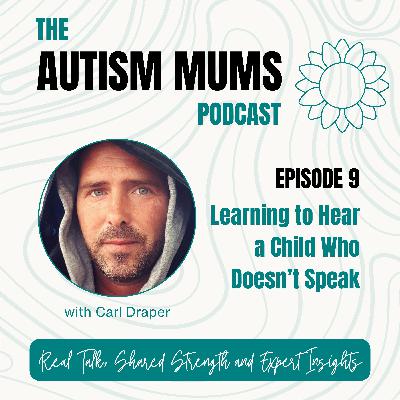Understanding and Overcoming Sleep Issues
Description
Today we're exploring a topic that many parents of autistic children can relate to: Sleep struggles. We'll explore the challenges surrounding sleepless nights. We are sharing our personal experiences and discussing strategies that have helped us navigate this exhausting journey.
Key Takeaways
Common Sleep Struggles: Many parents of autistic children face significant sleep challenges, often exacerbated by anxiety and sensory sensitivities.
Impact of Sleep Deprivation: Lack of sleep can worsen not only behavioral issues but also sensory struggles and overall well-being for both the child and the parents.
Trial and Error: Finding effective sleep solutions often involves trying various strategies, such as bedtime routines, environmental adjustments, and calming techniques.
Role of Melatonin: Melatonin can be beneficial for autistic children who struggle with sleep, but its usage requires careful monitoring and sometimes experimentation with different forms.
Communication and Support: Open communication with children about their sleep needs and preferences is crucial in finding solutions that work for them.
Self-Care for Parents: Managing sleep challenges can be exhausting, highlighting the importance of self-care strategies for parents, including seeking support and prioritizing rest when possible.
Connect with The Autism Mums
https://theautismmums.com/
Follow us on Instagram https://www.instagram.com/theautismmums
Follow us on TikTok https://www.tiktok.com/@theautismmums
Follow us on Facebook https://www.facebook.com/theautismmums
Transcript
[00:00:00 ]
Hello and welcome to the Autism Mums podcast. I'm Victoria. And I'm
Natalie. We are two sisters raising autistic children who know the
joy, the challenges, and the everyday moments. This is a supportive
space for honest conversations, practical tips, shared strength and
expert advice. Whether you are celebrating a win, surviving a
meltdown, or just trying to make it through the day, we are right
here with you.
Join us as we share the ups,
the downs, and everything in between parenting autistic children.
Natalie Tealdi: Today we are exploring a topic that many parents
of autistic children can relate to. Sleep struggles. We'll explore
the challenges surrounding sleepless nights. We are sharing our
personal experiences and discussing strategies that have helped us
navigate this exhausting journey.
Victoria
Bennion: For us, the sleep challenges started in line with
when my son's [00:01:00 ] anxiety hit a
real peak, and , it was all coming together at the same time. All the
struggles were getting so much worse and lack of sleep was one of
them. . He would just be up till the early hours of the morning.
It would get to 2:00 AM he'd
just be completely unable to go to sleep. And it was at a time when
he was so anxious as well. The lack of sleep was making everything
else so much worse.
It was making the sensory
struggle so much worse. It was making the anxiety the next day so
much worse 'cause he hadn't even rested and he's running on empty.
Natalie Tealdi: What sort of age was he then?
Victoria Bennion: He was eight. It was just something that
gradually, got worse., It was really, really exhausting. And we
weren't yet at the pediatricians, and I didn't know anything about
the link even because this was before we had a diagnosis, I just
didn't know why he couldn't sleep and we were trying everything.
We tried, going to bed
earlier. Maybe he's overtired, and we're getting to the point he's in
bed and we're past it. We tried baths, we tried [00:02:00 ]
turning the screens off earlier.
We tried, , listening to
music. We tried this lovely projector
We tried blackout blinds
again, which we still have from when he was little. , We moved the
room around. . He, didn't like to be under the window for a while, so
move the bed. Mum found a, a spray, it was supposed to aid sleep and
you sprayed it on the pillow. We tried that. , Oh, weighted blanket
We certainly went down that route of trying all the things that we
could think of.
But actually for us, at that
point, nothing was helping. It was leading up to the pediatrician
appointment, , and I was talking fairly regularly to the secretary,
just sort of checking in on the list and things and talking about the
struggles.
And she said to me, do you
give him melatonin? She said, you need to talk to the doctor when you
get your appointment. Which I did, and she explained to me that a lot
of autistic people don't make enough [00:03:00 ]
melatonin and that's why they can't sleep.
And she suggested trying a
melatonin gummy but then it explained that she couldn't prescribe it
and gave me a website where I needed to go and order it from America.
So that's what I did.
While I was waiting for us to
arrive, ' I mentioned it to a friend and she told me that she used
melatonin for her autistic child. At that point, we were getting very
little sleep so , she gave me a some of hers. She didn't have the
gummy, she had liquid and , with his very restricted diet. I didn't
even know how I was gonna get it into him, but I remember putting it
into one of his, yogurts and stirring it round and he just, he went
to sleep really, really quickly. It was within, 20 minutes. And he
was just. Flat out fast asleep. And you think that you'd be relieved
but I was in proper panic,
Natalie Tealdi: Oh no.
Victoria Bennion: Because we had been for weeks and weeks of no
sleep, that this was completely [00:04:00 ]
foreign , this seemed really unusual
so that was, probably my
introduction to sleep struggles.
Natalie Tealdi: . Our started a lot earlier, so our son. Gave up
naps really early, like 18 months old. I think 18 months to two years
was a real time where we noticed things changed. But being our first
child, it was quite tricky to really recognize the differences, I
suppose. It's only now that I have my daughter and she sleeps really
well, but I realize, , what an issue that was for our son.
But, , bedtimes would take
hours and hours, hours and hours. And he even now is too scared at
night. And we tried everything you can think of like changing the
bedding. He doesn't like wearing pajamas 'cause I don't think he
likes the feel of the material of the pajamas against the duvet
covers.
We tried changing his room.
Different room in the house.
Victoria Bennion: [00:05:00 ] Something
that we didn't mention was once you get to sleep, staying asleep,
didn't necessarily happen either and.
Natalie Tealdi: No,
If our son wakes up at, in the
night needing the toilet, he thinks I'm gonna get up. No. , And he'll
just get dressed at four o'clock in the morning because he's awake
and then trying to convince him to go back to sleep.
It can be really hard.
Victoria
Bennion: Four o'clock's an amazing time to get up and
start your day. You could get so much done.
Natalie Tealdi: Yeah, so I think anxiety around sleep is quite a
big thing. But like you, melatonin is our friend.
And it does feel strange
given, I think maybe 'cause it's not prescribed, it feels odd and
you're buying it from the internet, but it's recommended by the
doctor,
Victoria Bennion: Did you tell anyone about using melatonin? I just
wonder what reaction you got was everyone positive around you?
Natalie Tealdi: do you know, I don't remember any conversations
that have been
but it's not really something
I talk about a lot, to
Victoria Bennion: I mentioned it to somebody I was already anxious
about it. And she [00:06:00 ] said, she
had heard that it can stunt growth and I. There. Were , , other side
effects and it's worrying, isn't it?
Because you are already not
sure if you're doing the right thing. But if he doesn't have it,
literally can't sleep and he can't function, he can't at all access
school or life in any way. 'cause Absolutely exhausted.
Natalie Tealdi: And what does that do to your health? If you don't
sleep
enough, you know that's bad
for your body too.
Victoria Bennion: It's really bad for your body, but it's all these
things you're trying to balance, isn't it?
You're picking the right thing
or the wrong thing and . I think it's tricky. It's tricky. But, , my
sons now have melatonin for a couple of years and, , , it's a
lifesaver for him. He knows what he's taking. He wants to take it and
if he doesn't take it, he still can

